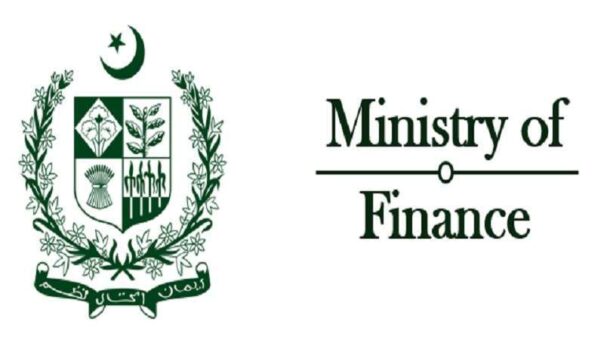(PkRevenue.com) – Salaried employees in Pakistan may see a salary increase of up to 15 percent in the forthcoming 2024-25 budget, according to official sources. The government is actively considering various proposals to enhance the salaries of public sector employees in the upcoming fiscal year.
Proposed Salary Increase
The government is contemplating increase for salaried persons in the range of 10 to 15 percent for public sector employees. The Ministry of Finance has initially proposed a 10 percent raise. However, there is potential for this increase to be adjusted upward due to various pressures, potentially resulting in a final increase of up to 15 percent for the salaried persons. This adjustment aims to accommodate the rising cost of living and inflationary pressures that have impacted public sector workers.
Economic Context and IMF Deal
The proposed salary increase comes amid the government’s efforts to secure a deal with the International Monetary Fund (IMF) under the Extended Fund Facility (EFF), which is estimated to be around $6 billion. To secure this deal, the government must demonstrate its commitment to stringent fiscal measures. This includes increasing revenue through both Federal Board of Revenue (FBR) tax revenues and non-tax revenues, as well as restricting expenditures.
Revenue Targets and Fiscal Adjustments
The government is considering setting an ambitious FBR tax revenue target of over Rs 12.5 trillion in the upcoming budget. This target reflects the government’s strategy to enhance revenue collection and reduce the fiscal deficit. On the expenditure side, the proposed salary increase, although necessary to support public sector employees, will require careful fiscal adjustments to maintain budgetary balance.
Monetization of Cars for Higher Grade Officers
In addition to the proposed salary increases, the government is also considering raising the monetization allowances for higher grade officers (grades 20, 21, and 22). Currently, grade 20 officers receive Rs 67,000 per month, grade 21 officers receive Rs 77,000 per month, and grade 22 officers receive Rs 87,000 per month. There is a proposal to increase these amounts by 20 to 25 percent to account for inflation. Officers benefiting from both cars and monetization argue that these allowances have not been adjusted since the policy’s inception in 2012.
Pension Reforms
The government is also set to introduce significant pension reforms along with increase for salaried persons in the 2024-25 budget. One proposal under consideration is to impose a tax on pensions exceeding Rs 100,000 per month, potentially introducing different tax slabs for higher-income pensioners.
Key Pension Reform Proposals:
1. Pension Calculation: Federal government employees would be entitled to a gross pension based on 70 percent of the average pensionable emoluments drawn during the last thirty-six months of service prior to retirement.
2. Early Retirement: Employees opting for early retirement after 25 years of service may face a penalty of a 3 percent reduction in gross pension for each year until the age of superannuation.
3. Pension Increases: Any increase in pension would be calculated at the time of retirement and maintained as a separate amount until reviewed by the government.
4. Family Pension: Family pensions, after the death or dis-entitlement of the spouse, would be available to remaining entitled family members for a maximum of 10 years. In the case of Shuhada Pension, this period may extend to 20 years. For disabled or special children, the family pension might remain admissible for life.
5. Pension Commutation: Employees may be given the option to commute up to 25 percent of their gross pension at the time of retirement under prescribed terms and conditions.
6. Re-employment of Pensioners: Pensioners re-employed in public service may choose to retain either their pension or the salary of the new employment during the period of re-employment. Additionally, individuals entitled to more than one pension would have to opt to draw one of the pensions.
Implementation and Impact
These proposed changes are aimed at addressing the financial needs of public sector employees and pensioners while balancing the fiscal constraints faced by the government. The salary and pension reforms are part of a broader strategy to ensure fiscal responsibility and economic stability.
The government’s ability to implement these reforms will depend on several factors, including its negotiations with the IMF, the economic environment, and public response to these changes. The proposed measures reflect a commitment to improving the financial well-being of public sector employees while adhering to fiscal discipline.
Public Reaction and Future Steps
Public sector employees and pensioners have welcomed the proposed salary and pension increases, but they also express concerns about the adequacy of these measures given the current inflationary pressures. The government’s efforts to secure an IMF deal and meet revenue targets are seen as critical to the successful implementation of these proposals.
Moving forward, the government will need to carefully navigate the complexities of fiscal management, ensuring that the proposed salary and pension reforms are both sustainable and effective in addressing the needs of public sector employees. Public education campaigns may be necessary to inform employees about the changes and their implications, fostering a smooth transition to the new system.
The proposed salary increase of up to 15 percent for salaried persons in the 2024-25 budget is a significant step towards supporting public sector employees amid rising living costs. Alongside this, the introduction of pension reforms and adjustments to monetization allowances for higher grade officers reflect the government’s broader strategy to enhance financial stability and efficiency within the public sector. As the government finalizes these proposals and seeks parliamentary approval, the focus will remain on achieving a balance between fiscal discipline and the financial well-being of public sector workers.
